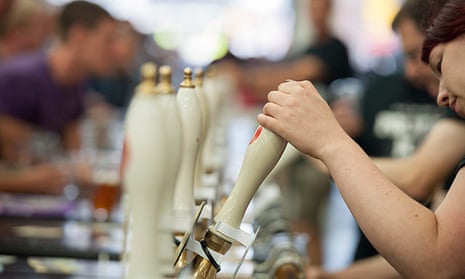It was 2011 when I was last a waitress. Despite my career change since, I still have those mornings spent in less-than-wakefulness where my instinct is to snatch my apron, hurry into my workwear heels and try to make it down the road before the bread van arrives.
It takes some effort to forget what it’s like to work in hospitality. I’ve written elsewhere about the physical challenges of the job – the lugging and heaving, the exhaustion of unsociable hours, the burnt hands and cut fingers, the tasks like scraping actual shit from a wall – but it’s the ongoing experience of being devalued that sticks in my mind.
You can have a good boss and nice customers but it doesn’t mean much when you’re so often spoken to like an indentured servant, reminded by so many punters to know your place, obliged to smile sweetly when you’re being taunted and abused - this is a “customer service” industry, after all.
The sexual harassment is the most palpable debasement – and the worst part isn’t the drunks who comment on your breasts, or score the shape of your arse with their mates, or suggest in slurred words that, if you’re lucky, when they’re so pissed you can smell the booze on their breath across the bar and they can barely stand without weeing down their own legs, they may indeed just lower themselves and shag you.
The worst part is you get used to it.
The union that represents the majority of Australia’s hospitality workers, United Voice, is currently running a campaign encouraging people to speak out about sexual harassment on the job. Which is good, because recognition is important – and wouldn’t it be nice, and human, and humanly nice if we had a Fair Work Commission that looked on the overwhelmingly female workforce of sister industries hospitality and retail, and made the recognition that these are low-paid, exhausting jobs with insecure and exploitative conditions and, my god, workers should be remunerated for sacrificing their Sundays to work them.
That’s not happening. The taxpayer-funded, well-paid holders of jobs-for-life in the “Fair” Work commission structured some further devaluation of these human beings by slashing hospitality and retail penalty rates between 25% and 50%.
Unbelievably, one of the justifications given in the commission’s findings was that there was already “significant levels of noncompliance” from employers who were legally obliged to pay their workers properly. So they have rewarded exploiters at the expense of the exploited – reinforcing a national culture of victim-blaming on an industrial scale.
Retail associations and hospitality bosses have been yearning for this cut for years. Retailers have been making record profits, hospitality is booming, but we’re fed the aggressive mythology and bad mathematics that slashing take home-pay of the poorest paid – calculations already claim workers will be $6000 a year worse off – will somehow create more jobs. It has, of course, already been proved when this happened in New Zealand that rather than create more jobs, the same jobs were squeezed for more hours to attain the previous rate of pay. And the experience of the low-wage economy in the United States has been an erosion of markets as workers getting paid less - who’d have thunk it - spend less money.
But when you have government backing in big business to the extent the Liberal party champions the “flexibility” of impoverishing an exploitable workforce, I’m sure the arguments made to the commission were very persuasive. And the Liberals have been seeking this – with substantial party donations from the retail and hospitality industry groups – for a long, long time.
They’ve been yearning for it since John Howard’s WorkChoices, as they’ve yearned for a reduction to minimum wage, the end of the union movement and the final destruction of the workplace protections that defend workers from the kind of whim-based exploitation that poor capitalists chase when they can’t better their bottom line.
Nothing says “Australian management culture” like agitating for legislation to pay your workers less.
Except maybe also putting your hand out for a $50bn business tax cut from the government when so many companies pay no tax anyway. Oh, and allowing record levels of worker casualisation – up to 40%, when in Germany 20% was considered a national emergency. Not to mention the now 1m workers in Australia who’ve been flown in on 457s and their variants.
And only this week we learned that wage growth is remaining at record lows, despite the ongoing, increasing productivity of the actual workforce.
That’s a hell of a lot of government help for a strata who insist they are so innovative, agile and self-made. In fact, if Australian capitalists were my employees and they kept performing so weakly, I’d fire them. But then, what would I know? I am, after all, just an erstwhile waitress.

